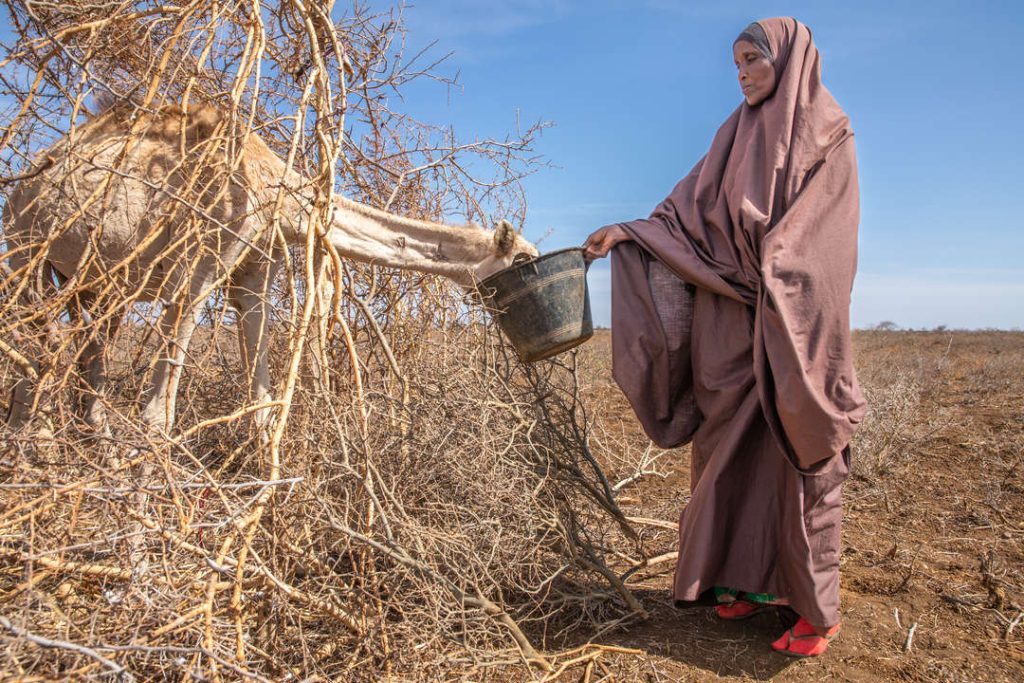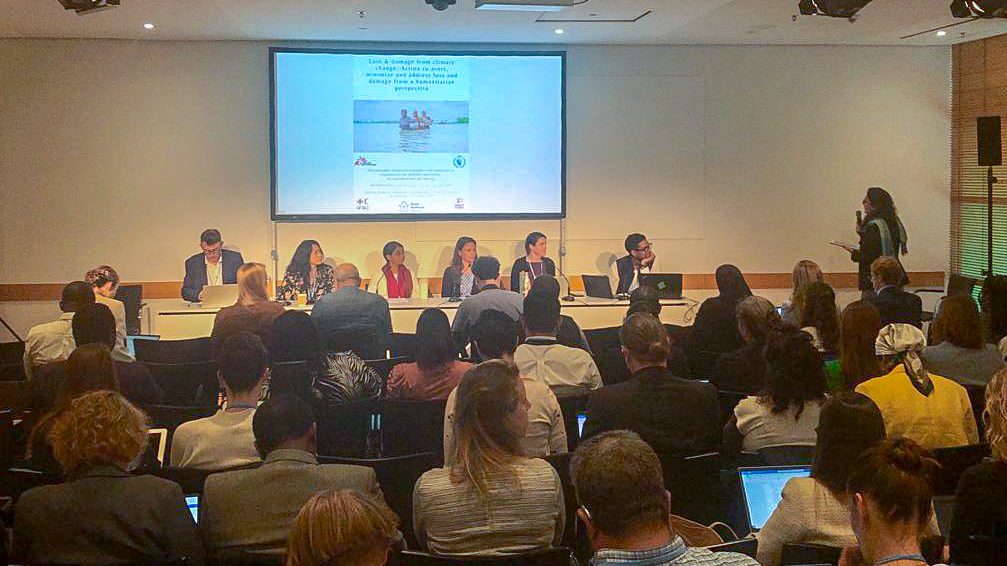This month saw climate negotiators and technical experts meet in Bonn for the 58th session of the Subsidiary Bodies (SB58). Despite several important issues fast approaching key decision moments, this opportunity to build consensus and deliver for communities in crisis came dangerously close to collapse.
Agenda squabbles overshadow urgent climate issues
Even as parties gathered in Germany, the impacts of climate change were making headlines: wildfires and related pollution clouding skies in North America, devastating droughts still affecting communities in the Horn of Africa, and the North Atlantic Ocean reaching record-level surface temperatures. It couldn’t have been clearer that for those on the frontlines of climate change around the world, real progress is urgently needed across all three pillars of climate action: mitigation, adaptation and loss and damage.

Astoundingly, it still took until the very last day for the assembled parties to even agree on the agenda. Urgent talks to resolve the deadlock took valuable time away from negotiating substantive issues, but worse still was the level of disagreement, the inability to find solutions, and the underlying lack of trust that this indicated – a combination that sets a dangerous precedent ahead of COP28.
At a crucial time for climate action, the SBs, usually focused on technical issues, are being slowed down by political divides. Looking at the outcomes of Bonn, what effect has this had on progress?
Loss and damage: the need for new funding and technical assistance
The Glasgow Dialogue offered the opportunity to continue discussions on the establishment of a loss and damage fund – as agreed at COP27 – that corresponds to the needs of vulnerable communities directly impacted by climate change. The Dialogue aimed to respond to questions related to the characteristics of the fund, the specificities of non-economic loss and damage and slow onset events, and ways in which institutions could maximize existing support for responding to loss and damage.
Although it was reassuring to see a consensus on the fund’s necessity, we noted a greater focus on funding arrangements. Progress will require more than the increasing of resources allocated to existing mechanisms; new, systemic and comprehensive approaches, in some cases informed by lessons learned from the humanitarian sector, are needed.
While a fund will be vital to channel much-needed resources to address loss and damage, technical assistance is essential for ensuring these resources are well-spent. The Santiago Network, established for just this purpose, has not yet been operationalized. Although discussions made some headway, the hosting of the secretariat remained a topic of disagreement, and parties postponed the decision until COP28. The final decision must ensure that the Santiago Network is fit for purpose by ensuring an independent secretariat, clear funding commitments, comprehensive approaches to addressing loss and damage, and the inclusion of all countries and vulnerable communities.

Limited progress on adaptation and finance
Many processes are moving from a phase of technical discussions to political negotiations, including the Global Goal on Adaptation (GGA), the New Collective Quantified Goal (NCQG), and the Global Stocktake (GST).
Following a series of technical workshops that laid the foundations for the GGA, parties agreed that a flexible and inclusive framework is essential for the GGA to achieve its objectives of reducing climate vulnerability, enhancing adaptive capacity and strengthening resilience. Unfortunately, discussions stalled when it came to agreement on specific targets. Any agreement should include high-level targets around adaptation impact – aligned to the Sendai Framework and the Sustainable Development Goals – as well as reflect the funding required for adaptation and support according to the principle of Common but Differentiated Responsibilities and Respective Capabilities.
Where the GGA provides clarity on what is needed to adapt to climate change, the NCQG provides a common objective for climate finance from 2025. During a technical workshop, negotiators focused on targets and how to achieve them and agreed that a single number and goal may not be sufficient, with several concrete suggestions on the table on how to structure the goal. However, it remains again uncertain whether the technical phase will be translated into an outcome when the negotiations become political, and some negotiators don’t seem to be willing to make any concrete decisions until the end of 2024, when the current climate finance goal sunsets.
A disconnect between technical considerations and political decisions was also apparent in the Global Stocktake (GST). The interactive discussions in Bonn, seeking to track progress made on climate action since the Paris Agreement, could not prevent countries disagreeing on how to structure the report and proceed with issues related to finance and support. We will have to wait until COP28 to see an agreement on the final structure and a political outcome, which is already being described as an essential part of the ‘Dubai deal’.
Further deadlock is not an option
The Bonn Climate Conference highlighted a worrying disconnect between promising technical discussions and obstructive political decisions. Parties often remained stuck in their positions, hindering progress on important issues.
As the impacts of climate change are increasingly felt around the world, bridging these divisions is of paramount importance. If there is to be any hope of meaningfully addressing the climate crisis at COP28, the technical discussions in Bonn must be translated into collaborative action and concrete political commitments in Dubai.
To find out more about the Alliance’s participation at the Bonn Conference, and to view a recording of our official side event on loss and damage, visit our event page.

Comments